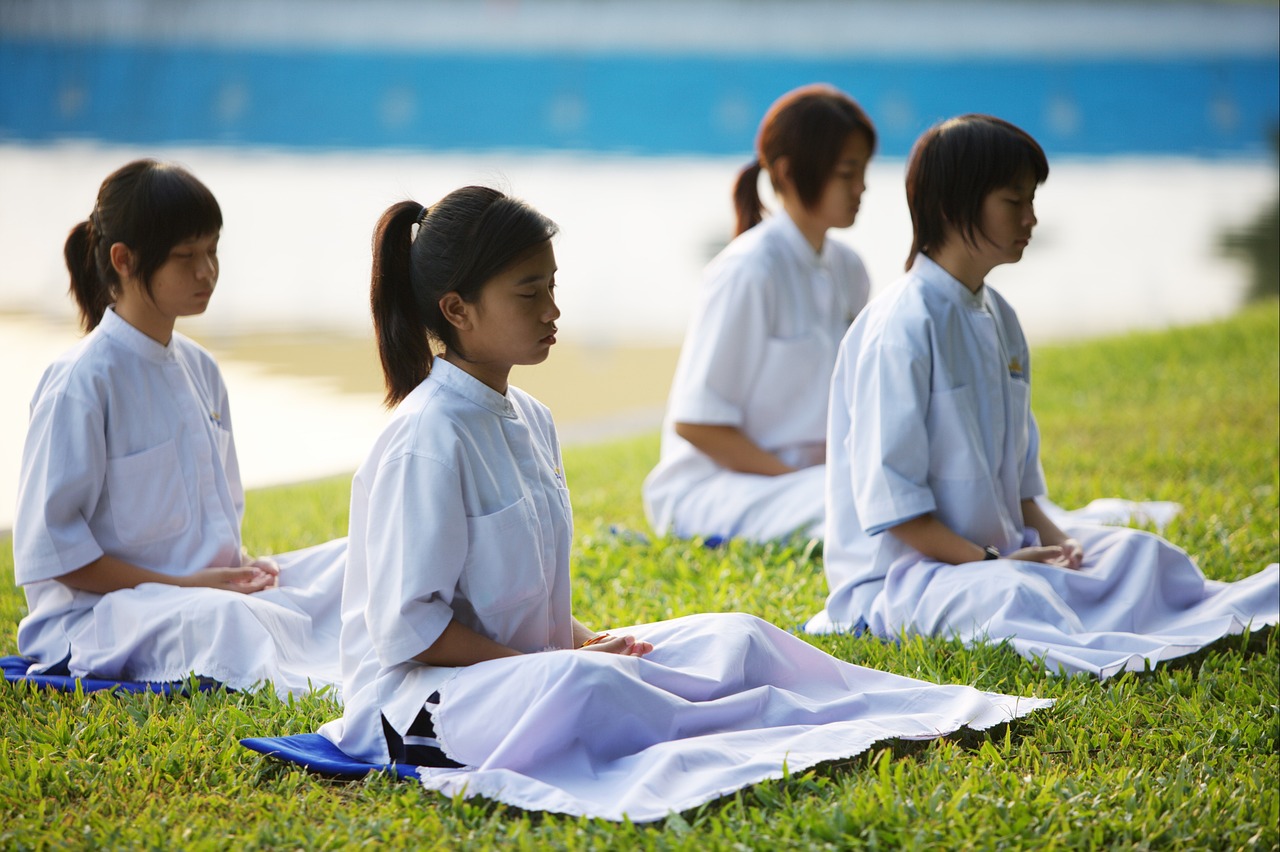Safety Tips for Remote Workers in Thailand
Thailand is a popular destination for remote workers due to its beautiful landscapes, affordable cost of living, and vibrant culture. While working remotely in Thailand can be an exciting experience, it’s important to prioritize safety and take necessary precautions. This article will provide you with essential safety tips to ensure a secure and enjoyable remote working experience in Thailand.
Section 1: Research Your Destination
Before traveling to Thailand, it’s crucial to research your destination thoroughly. Familiarize yourself with the local customs, laws, and regulations. Understand the political and social climate of the area you plan to stay in. Additionally, check the travel advisories issued by your government to stay informed about any potential risks or safety concerns.
- Local Laws and Customs: Thailand has strict laws regarding drugs, public displays of affection, and disrespecting the monarchy. Familiarize yourself with these laws to avoid any legal issues.
- Travel Advisories: Stay updated on travel advisories issued by your government, as they provide valuable information about safety concerns, health risks, and political situations in Thailand.
- Political and Social Climate: Thailand has experienced political unrest in the past. Stay informed about any ongoing demonstrations or protests and avoid participating in political activities.
Section 2: Secure Your Accommodation
Choosing a safe and secure accommodation is vital for remote workers in Thailand. Consider the following factors when selecting your place of stay:
- Location: Opt for accommodations in safe neighborhoods with good security measures. Research the area’s crime rate and proximity to essential amenities.
- Secure Entry: Ensure that your accommodation has secure entry systems, such as key cards or electronic locks, to prevent unauthorized access.
- Emergency Procedures: Inquire about emergency procedures, including fire exits and evacuation plans, to be prepared for any unforeseen situations.
- Reviews and Recommendations: Read reviews and seek recommendations from fellow remote workers or trusted sources to find reputable and safe accommodation options.
Section 3: Personal Safety
Maintaining personal safety should be a top priority for remote workers in Thailand. Follow these tips to ensure your well-being:
- Stay Alert: Be aware of your surroundings and trust your instincts. Avoid walking alone in unfamiliar or poorly lit areas, especially at night.
- Secure Valuables: Keep your valuables, including laptops, smartphones, and passports, secure at all times. Consider investing in a reliable lock or safe for your accommodation.
- Use Reliable Transportation: Choose licensed taxis or reputable ride-sharing services for transportation. Avoid unmarked or unofficial vehicles.
- Protect Personal Information: Be cautious while sharing personal information online or in public. Use secure networks and avoid accessing sensitive data on public Wi-Fi.
Thailand Image 1:

Section 4: Health and Hygiene
Maintaining good health and hygiene practices is essential for remote workers in Thailand. Follow these guidelines to stay healthy:
- Stay Hydrated: Thailand’s tropical climate can be dehydrating. Drink plenty of water and carry a reusable water bottle with you.
- Eat Safe Food: Be cautious while eating street food. Choose vendors with high turnover, as it indicates freshness. Wash fruits and vegetables thoroughly before consuming.
- Take Precautions Against Mosquitoes: Thailand is prone to mosquito-borne diseases like dengue fever and malaria. Use insect repellent and wear protective clothing.
- Get Vaccinated: Consult with a healthcare professional to ensure you are up to date on necessary vaccinations before traveling to Thailand.
Section 5: Emergency Preparedness
Being prepared for emergencies is crucial for remote workers in Thailand. Take the following steps to ensure your safety in unforeseen situations:
- Register with Your Embassy: Register with your embassy or consulate upon arrival to receive important updates and assistance during emergencies.
- Emergency Contacts: Keep a list of emergency contacts, including local authorities, your embassy, and your accommodation’s emergency contact information.
- Travel Insurance: Obtain comprehensive travel insurance that covers medical emergencies, trip cancellations, and other unforeseen events.
- Know Basic First Aid: Familiarize yourself with basic first aid techniques and carry a first aid kit with essential supplies.
Section 6: Cybersecurity
Protecting your digital assets and personal information is crucial for remote workers in Thailand. Follow these cybersecurity tips:
- Strong Passwords: Use unique and strong passwords for your devices, accounts, and Wi-Fi networks. Consider using a password manager to securely store your passwords.
- Secure Wi-Fi: Be cautious when connecting to public Wi-Fi networks. Use a virtual private network (VPN) to encrypt your internet connection and protect your data.
- Regular Software Updates: Keep your devices and software up to date to ensure you have the latest security patches and bug fixes.
- Backup Data: Regularly backup your important files and data to a secure cloud storage or an external hard drive.
Thailand Image 2:

Section 7: Cultural Sensitivity
Respecting the local culture and customs is essential for remote workers in Thailand. Follow these guidelines to ensure cultural sensitivity:
- Dress Appropriately: Dress modestly and respect local customs, especially when visiting temples or religious sites.
- Remove Shoes: When entering someone’s home or a place of worship, remove your shoes as a sign of respect.
- Greetings and Gestures: Learn basic Thai greetings and be mindful of cultural norms regarding gestures and body language.
- Respect Monarchy: Avoid any form of disrespect towards the Thai monarchy, as it is considered a serious offense.
Section 8: Traveling Alone
If you are traveling alone as a remote worker in Thailand, consider the following safety tips:
- Inform Others: Share your travel plans with a trusted friend or family member. Regularly update them about your whereabouts.
- Stay Connected: Carry a fully charged mobile phone and ensure you have access to local emergency services.
- Avoid Isolated Areas: Stick to well-populated areas and avoid walking alone at night.
- Join Group Activities: Participate in group activities or guided tours to meet fellow travelers and minimize safety risks.
Section 9: Financial Safety
Protecting your finances is crucial for remote workers in Thailand. Take the following steps to ensure financial safety:
- ATM Safety: Use ATMs located in well-lit and secure areas. Shield your PIN when entering it and be cautious of anyone nearby.
- Keep Cash Secure: Avoid carrying large amounts of cash. Use a money belt or a secure wallet to keep your money and cards safe.
- Notify Your Bank: Inform your bank about your travel plans to avoid any issues with your cards being blocked due to suspicious activity.
- Use Secure Payment Methods: When making online payments or shopping, use secure payment gateways and avoid sharing sensitive information with untrusted websites.
Thailand Image 3:

Section 10: Socializing and Networking
Socializing and networking are important aspects of the remote working experience in Thailand. Keep these tips in mind:
- Meet in Public Places: When meeting new people, especially online connections, choose well-populated public places for your initial meetings.
- Trust Your Instincts: If something feels off or uncomfortable, trust your instincts and remove yourself from the situation.
- Research Social Events: Before attending social events or meetups, research the organizers and venues to ensure their legitimacy and safety.
- Share Selectively: Be cautious about sharing personal information with new acquaintances until you have established trust.
Section 11: Language and Communication
While English is widely spoken in tourist areas of Thailand, learning a few basic Thai phrases can enhance your communication and safety:
- Basic Greetings: Learn how to say “hello,” “thank you,” and “goodbye” in Thai to show respect and make interactions more pleasant.
- Emergency Phrases: Familiarize yourself with essential emergency phrases, such as “help,” “police,” or “hospital,” to seek assistance when needed.
- Language Apps: Download language apps or carry a pocket phrasebook for quick reference.
Section 12: Conclusion
By following these safety tips, remote workers can enjoy a secure and rewarding experience in Thailand. Remember to stay informed, prioritize personal safety, and respect the local culture. Embrace the opportunity to work remotely while exploring the wonders of Thailand.
References
– travel.state.gov
– gov.uk/foreign-travel-advice
– cdc.gov/travel
– tourismthailand.org


